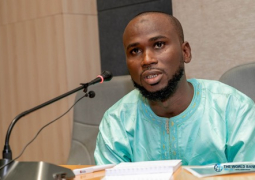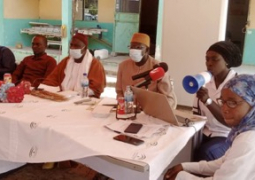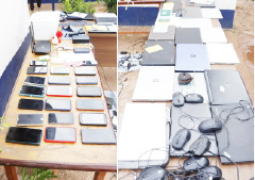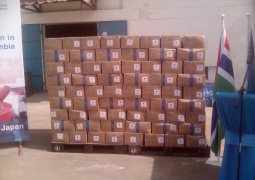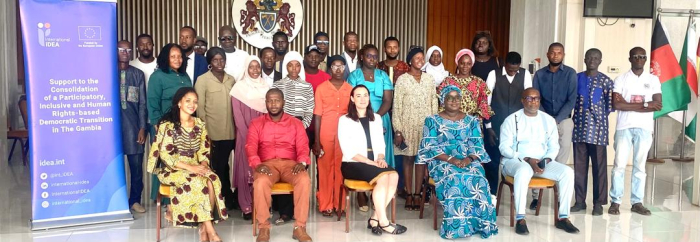
Welcoming the gathering, Muhammed MS Bah, President of The Gambia Press Union, reminded his colleagues that conflict-sensitive reporting is fundamental to ethical journalism, particularly when addressing sensitive issues such as children’s rights, sexual and gender-based violence, and transitional justice.
“Our work must center around the voices of victims and survivors, ensuring their stories are told with dignity and respect, while avoiding re-traumatization.”
He observed that the TRRC process exposed deep national wounds, and that as journalists, they have a critical role in supporting the implementation of the White Paper recommendations by ensuring ‘our stories promote healing, accountability, and reconciliation, rather than division or sensationalism.’
Jainaba Faye, Head of the Country Office for International IDEA, underscored the critical role of journalists in reporting about the government’s efforts to implement the TRRC recommendations.
“Citizens, especially victims, will continue to rely on you for information on what is being done to bring them justice and reparation.”
She emphasized that conflict-sensitive reporting requires treating victims with dignity, respect, and compassion. “Every story you report has a human face behind it. This is especially true when it comes to victims of crime or human rights abuses.”
Faye reminded that the ethical responsibilities of journalists, which she said, including respecting privacy and consent, minimizing harm, avoiding stigmatization, ensuring accuracy, and protecting the identity of vulnerable victims.
“This is not just a professional guideline; it is a moral imperative.”
Enya Braun, Special Adviser on Transitional Justice and EU Representative, reaffirmed EU’s unwavering commitment to supporting The Gambia’s democratic transition. She described this process as one rooted in truth, accountability and reconciliation.
Braun remarked that the TRRC’s work had uncovered significant truths about past human rights violations, leaving the nation with the responsibility to address those legacies while fostering healing and reconciliation.
“The media plays a pivotal role in this process - not only as a conduit of information but as an agent of change.”
While highlighting the transformative power of journalism, she also noted that they have the ability to shape narratives that promote understanding, hold institutions accountable, and safeguard the rights of victims and communities.
“Conflict-sensitive reporting demands not only professional rigor but also empathy, cultural sensitivity, and an unwavering commitment to ethical standards.”


